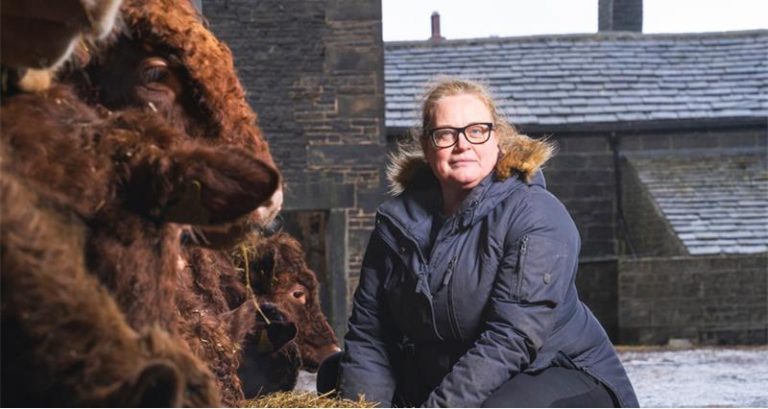- Acting as strong independent business voice embedded in decision-making – an eligibility requirement for some HMG programmes.
- Strengthening local economic strategies and interventions.
- Being a strong vehicle for leveraging match funding for public sector programmes and developing effective partnership to support growth.
- Providing challenge and insight on business impact of public sector initiatives.
- Adding delivery expertise, pace and market credibility.
- Shaping business, trade and investment support around local business needs.
Business gets a new voice through network going live today
A new organisation to champion the collective local business voice and meet the priorities of the increasing number of business boards in councils and Mayoral Combined Authorities goes live today.
The Business Board Network will independently support business and economic growth boards with their plans to drive local growth and build local economies, and to ensure that the voice of local business is heard and acted on, forging a collective single minded approach to achieve that aim.
Mark Bretton, Chair of the Business Board Network, said:“Our mission is simple – connecting local growth and building local economies. The new Business Board Network goes live just as we start working with the new government on their core priorities.
“The bread-and-butter work of business boards, and of the Business Board Network in supporting them, is to help deliver Local Growth Plans, applying a modern industrial strategy and infrastructure strategy to the benefit of local regions, and achieving local net zero ambitions. We’ll also be supporting the valuable Growth Hub network as the “go to service” for local small businesses, and working with other Business Representative Organisations and the British Business Bank, especially in overcoming the biggest barrier for growth to SMEs – access to finance.”
Following the transition of LEP functions to MCAs and councils, a letter from government to local council chairs in April 2024 laid the foundations:
“The government supports the principle of maintaining a network that continues to represent the local business voice to help strengthen the aims of devolution and economic growth – and to that end hope you will support the evolving Business Board Network.”
Government guidance to local authorities delivering business representation and local economic functions set out the value and role that business boards will play in local growth and devolution:
Merger for North Yorkshire property business
Three years after joining forces with two property professionals that specialise in commercial and rural property, residential property search agency, The Search Partnership, has merged with The Commercial Partnership and The Land Management Partnership to form one company – The Property Partnership Group.
The merger coincides with the appointment of Emma Hynd and Kathryn Wallace and the company’s 10-year anniversary, as well as the launch of a new website.
The Property Partnership Group now has four divisions specialising in property search, commercial property, rural consultancy and investment.
Toby Milbank, from The Property Partnership Group, said: “Over the past decade, Tom Robinson and I have helped hundreds of clients find and buy country houses, townhouses, sporting estates and farms, as well as finding forestry and investment property opportunities across Yorkshire and the North of England.
“For the last three years we have worked alongside Edgar Seligman and Blair Wallace from our base in Boroughbridge. However, over time we have been working more closely together, often providing multiple services to the same client. We therefore felt the time was right to operate as one business, re-brand and launch a new website. We feel together we have a powerful and compelling offering.”
Fellow director, Blair Wallace, who runs the rural consultancy side of the business said: “We are all proud of the small businesses that we have run successfully. Pooling our knowledge base and experience in a more coherent way will allow us to grow the business together.
“We have also recently appointed Kathryn Wallace, who is a Chartered Surveyor and a Fellow of the Association of Agricultural Valuers, to support the work we do and Emma Hynd also joins us in rural consultancy, in an administration and operational role.”
Director, Edgar Seligman, who runs the commercial side of the business, continued: “We provide bespoke and professional advice to our clients and can now take a truly multi-disciplined approach as The Property Partnership Group.
“Toby, Tom, Blair and I are all RICS qualified, experienced, highly professional and discreet. These qualities form the pillars of our business, and acting with integrity at all times is also critical to our approach. We are delighted to welcome Kathryn and Emma to the team, as we celebrate the 10-year anniversary and plan for future growth.”
Knaresborough pest control company acquires garden care product manufacturer
Knaresborough pest control manufacturer and supplier Pelsis Group has acquired Nottingham-based garden care product manufacturer, Doff Portland, strengthening the group’s portfolio of retail, agricultural and professional brands.
Established in 1946, Doff Portland manufactures a number of leading brands and private label products for major retailers in the UK and EU. These brands include Doff, Portland Garden, Power Up and Green Fingers.
Speaking about the acquisition, Pelsis Group CEO Alex Ashmore said: “In Doff we have found a strong partner to complement our own well known retail brands and channels. The combined strengths of Pelsis’ distribution network and Doff’s product portfolio in the UK and Europe will make a powerful combination of brands and channels for our customers,” he said. “We are excited to welcome the Doff team to the Pelsis family.”
Doff Portland becomes a wholly owned subsidiary with its 85 employees, customers and suppliers welcomed into the Pelsis Group.
The deal follows Pelsis’ acquisitions of Brandenburg (2022) and Sanitrade (2021) which focused on the Professional Pest Control categories. Doff Portland provides a good balance to Pelsis’ portfolio, with its well-known retail brands and commitment to offering sustainable and environmentally responsible products and solutions to pest management issues, ahead of increasingly stringent global regulatory requirements.
Commenting on the sale, Doff CEO Ben Shapiro said: “This acquisition presents a phenomenal opportunity for Doff. There is a great fit in terms of our vision and values. Both businesses have been focused on investing in their portfolios of environmentally responsible products for amateur and professional users.
“This will continue and the combination will hugely benefit our employees and our customers as we find new opportunities for growth.”
Pelsis was advised by Alvarez & Marsal and DLA Piper. Doff Portland was advised by Hill Dickinson and Cavendish.
400-job data centre gets planning permission at South Killingholme
A £3bn investment by Humber Tech Park to develop one of Europe’s largest data centres on land near the A180 at South Killinghome has been given the green light by North Lincolnshire Council.
The development will create almost 400 well-paid jobs as well as making the area a leader in artificial intelligence.
Cllr Rob Waltham, leader, North Lincolnshire Council, said: “This development shows a massive vote of confidence in North Lincolnshire’s economy.
“This is an unprecedented investment in the area, and it will be a magnet for attracting other high-tech businesses to make North Lincolnshire their home.
“The 400 jobs would be highly skilled and highly paid – averaging around £50,000 a year for operational employees.
“This will mean residents from our area who usually need to move to the city to access this type of work will now be able to access these well-paid job in the technology sector on their doorstep. More will be employed during the construction phase.
“The development will see investment in community infrastructure and money for local education and training. Biodiversity would also be improved with landscaping, tree planting and ponds.”
Let the buyer beware: Watch out for ‘ghost brokers’ in insurance world, says Sheffield firm
Sheffield chartered broker IFM Insurance is urging residents be extra vigilant when buying motor insurance at a time when reported cases of customers being tricked into purchasing fake motor insurance policies by ghost brokers have increased, according to the latest data from the Insurance Fraud Bureau.
Alister Smith a Director of IFM Insurance Brokers said: “This is an insurance scam which is being carried out by fraudsters. So the message to customers is be extra vigilant when buying motor insurance particularly from unfamiliar sites. It also reinforces the importance of buying insurance based on value not on price. Customers can always contact their local broker who can source robust insurance from reputable and reliable insurance companies.”
Ghost brokers are fraudsters who sell cheap motor insurance deals but issue policies that aren’t worth the paper they’re written on.
Ghost brokers often operate through websites or small ads offering cheap insurance. They target people on a budget and communities where English is not the first language. They will often issue completely fictitious policies.
IFM top tips:
• Use a chartered broker to source the best policy to meet you needs
• Beware of buying insurance policies from unusual sources such as social networks, newsagents or bars and pubs
• Check your insurer is a Motor Insurers’ Bureau member
Yorkshire building services engineering company sets sights on £12m turnover and creating new jobs
A Yorkshire based building services engineering company has marked its tenth anniversary by setting its sights on hitting £12million turnover and creating new jobs this year.
GW Power-Safe was established in Hull in 2014 by managing director, Daniel Haley after he was made redundant from his job as an electrician. Today it offers a full range of renewable energy, mechanical and electrical solutions to public sector clients and businesses across all industries.
The company now employs a 37-strong team and is actively recruiting electricians, plumbers, gas and heating engineers, air conditioning engineers, renewables specialists and apprentices this year.
In recent years, GW Power-Safe has diversified into decarbonisation and the renewables sector, and two years ago Daniel co-founded C3 Group which provides sustainability consulting services to businesses around the UK, focussing on sustainable energy solutions, carbon reduction plans, feasibility studies, funding and net zero strategies. C3 Group is headed up by Ash Wray and currently employs a team of four sustainability consultants and designers.
In recognition of his work in decarbonising buildings, as well as the success of both GW Power-Safe and C3 Group, Daniel was recently presented with an Octopus Energy Springboard Entrepreneur Award by Octopus co-founder, Chris Hulatt. He was nominated for the award by Kingston upon Hull West and Haltemprice MP, Emma Hardy. This follows GW Power-Safe also being named as Hull College’s Apprentice Employer of the Year.
GW Power-Safe celebrated its tenth anniversary with a celebration in Hull’s Victorian Paragon Shopping Arcade. During the event, awards were also presented to team members who go above and beyond. These were voted for by their colleagues and included Apprentice of the Year, Zuzanna Radzewicz, Engineer of the Year, Aiden Armstrong, Office Champion, Amy Mumby and Rising Star, Dion Wilkin.
Daniel said: “After leaving school and becoming an electrical apprentice at Hull College, I qualified as an electrician but when I was suddenly made redundant in my mid-20s, I decided the time was right to start my own business and GW Power-Safe was born. We now provide a full range of mechanical and electrical trades to all types of clients, as well as becoming a renewables specialist.
“As part of this we’re now working on solar, commercial battery and air source heat pump installations for public sector organisations such as NHS Trusts and education establishments across the north of England. We also recently secured a place on the Crown Commercial Services’ renewables framework, which provides the public sector with decarbonisation services to support their carbon net zero strategies.
“This is already proving to be a big growth area for us which will result in double-digit revenue growth this year as our turnover reaches £12million. Our team is also growing in line with this and as well as recruiting up to 10 qualified and experienced engineers this year, we’re always committed to investing in apprentices. After I came into the industry as an apprentice, I know how important it is to invest in future talent. We already employ seven apprentices and will recruit another four in the coming months.”
Finally, Daniel added: “Another area that’s driving growth has been the launch of C3 Group and its ability to collaborate with G3 Power-Safe to provide clients with an end-to-end solution, from design right through to delivery, for their decarbonisation needs. This also means that we’re increasingly securing work outside our East Yorkshire heartland and we’re now working on projects across the country, and this national focus will be key to our future growth.”
Property Activation Fund grant supports opening of new shop in Goole
A £6,000 Property Activation Fund grant from Goole Town Deal has helped Richard and Yvonne Sharp to open the first high street branch of specialist travel company Go Cruise & Travel.
As well as bringing an empty shop back into use and enhancing the appearance of the town centre, the opening of their Goole branch has also created one new job.
Richard and Yvonne received a Property Activation Fund grant of £6,224.64 towards the cost of refurbishing the building, which involved the installation of LED lighting, new flooring and internal partitions; work to clean and decorate the shop to a high standard; and the installation of smart new signage. The couple also invested about £9,000 of their own money to bring their new business venture to Goole, with the total cost of the restoration project exceeding £15,000.
Councillor Anne Handley, Leader of East Riding of Yorkshire Council, said: “It’s fantastic to see another prominent town centre shop back in use and looking very smart, and to have yet another new business choose to invest in our town. I wish Richard and Yvonne the very best of luck with their new venture.
“This is a positive outcome from the Property Activation Fund and I’m excited to see what else we can achieve through this fantastic project, which, by attracting investment, is making a real difference to the way our town centre looks and feels.”
Richard said that he and Yvonne were keen to open a branch in Goole because the town has been without a high street travel agency for some time, adding: “It’s an up-and-coming place and, given the size of the town, we believe there’s an opportunity to provide this service to the local community.
“The Property Activation Fund helped us bring this to life and enabled us to produce a higher quality premises than we may have done.”
As Richard explained, he and Yvonne have also received support from Invest East Yorkshire’s Business Support Services team, which is part of East Riding of Yorkshire Council.
He said: “Harry Booth has been our Business Advisor from Invest East Yorkshire since we first started the business. It was Harry who brought the Goole Town Deal’s Property Activation Fund to our attention and he’s been a big help with it all.”
Mr Booth explained: “I started working with Richard when he launched his venture from home. He quickly realised he wanted to grow the business by opening a high street branch. Richard spotted a gap in the market in Goole town centre and began to explore this opportunity in more detail.
“It was at this point that I signposted him to his local Business and Intellectual Property Centre and made him aware of Goole Town Deal’s Property Activation Fund by sending him details about an open day that the Goole Town Deal team were hosting, which he attended. From this, Richard was able to gather key business intelligence and statistics that helped to inform his decision.”
One of eight strategic projects that form part of the Goole Town Deal regeneration programme, the Property Activation Fund aims to encourage property owners, developers and tenants to carry out improvements to buildings in Goole town centre and bring empty or under-used sites back into use. It will make the town centre a more attractive and appealing place to invest in and do business by restoring, refurbishing and, ultimately, reinventing buildings that are empty, under used or in a poor state of repair.
Yorkshire Building Society names new non-exec director
Peter Bole has is to join the Board of the Yorkshire Building Society as Non-Executive Director on 1 September.
Peter has over 30 years’ experience in financial services and has held the role of Chief Financial Officer at Tesco Bank and Virgin Money, where he went on to become Group Integration Director.
In his current position as CFO of esure Group, he has played a key role in their digital transformation programme. Much of his career has been spent at organisations that are experiencing a period of growth and transformation.
Annemarie Durbin, chair of Yorkshire Building Society, said: “Peter has considerable experience in the financial services sector. His skills and knowledge will be of considerable value to Yorkshire Building Society and the Board as we continue to grow in the years ahead.”
Peter said: “Yorkshire Building Society’s strong mutual heritage and purpose-driven approach was particularly appealing, and I look forward to using my experience to support the Society as it grows for the benefit of its members, customers and communities.”
Cost of countryside crime tops £1m a week, says NFU
Intelligence shows thieves frequently target several farms in one night before moving locations to steal these highly valuable and portable kits, often revisiting farmyards weeks later to steal any replacements.
Increases can also be seen in quad bike, ATV and livestock thefts, while the total claims cost for agricultural vehicle theft reported to NFU Mutual decreased by 9%.
NFU Vice President Rachel Hallos said: “As NFU Mutual’s report highlights, rural crime has continued to plague the British countryside over the past year. Criminals steal expensive GPS equipment, livestock and high-value farm machinery, while also trespassing on private land and regularly fly-tipping tons of rubbish.
“Not only does rural crime significantly cost the UK on a national level, but it also has a significant impact personally to those farm businesses and farming families financially and emotionally affected, leaving many rural communities feeling vulnerable and intimidated.”
Quad bikes and ATVs were top targets for rural thieves, with thefts up 9% to an estimated £3.2m in claim costs reported to NFU Mutual last year.
Sharp rises in inflation in 2023 made farming equipment an attractive target for organised gangs and meant each theft cost the rural community more than in previous years. But a co-ordinated response against crime saw a reduction in the number of agricultural vehicle claims reported to NFU Mutual.
Livestock theft remained high in 2023, at an estimated cost of £2.7m across the UK. Farm animals worth an estimated £2.4m were severely injured or killed in dog attacks across the UK in 2023, up nearly 30% compared to the previous year.
Rachel said these alarming trends needed urgent attention, adding that the NFU welcomed the Dogs (Protection of Livestock) (Amendment) Bill, due to be debated in the House of Lords when Parliament was dissolved prior to the election.
“It is crucial similar measures are introduced to stop this needless suffering to livestock,” Rachel said.
“The NFU was pleased to see a new Crime and Policing Bill introduced in the King’s Speech, and we look forward to seeing the details of this Bill when published.”
Small firms have a big role to play in Government’s housing plans – claim
Small and micro businesses are a fundamental part of the construction sector, and have the potential – with the right support and encouragement – to play a transformative role in delivering new homes in line with newly-published Government plans.
That’s the view of Tina McKenzie, Policy Chair at the Federation of Small Businesses, ho said: “We would ask that small housebuilders are central to the Government’s plan. Without that, the project won’t succeed and too few people will be able to get the houses they need.
“The sad reduction in the number of small housebuilders in recent decades is a cause – not just a consequence – of so many of the problems in supply.
“The Government must make sure it’s mindful of the different needs small housebuilders have compared to the major developers – and that we can get Britain building faster and better if the financing, skills and business needs of smaller firms are front of mind.
“That includes reforming policies like the consumer infrastructure levy so they don’t structurally prevent small businesses from accessing finance to build.
“Hand-in-hand with all of this should also be action to tackle late payments and other poor payment practices by big businesses to their smaller suppliers, which are particularly prevalent in the construction sector and act as a brake on investment.”












